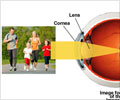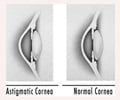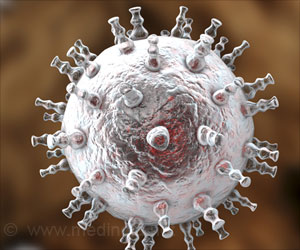A contact lens solution loses its anti-fungal properties when exposed to high temperatures, according to a new study.

Background information in the article suggests that Bausch and Lomb launched in 2004 its ReNu with MoistureLoc, which contains an antimicrobial agent not found in other solutions.
The cases of Fusarium keratitis related to the contact lens solution first came to light in 2006, when they were reported to the U.S. Government. A total of 154 confirmed cases were identified in the country.
"Bausch and Lomb investigators acknowledged that all original cases appear to be related to ReNu with MoistureLoc produced in their Greenville, S.C., plant," the authors write.
The Food and Drug Administration (FDA) inspected the facility, and cited Bausch and Lomb for inadequate temperature control in the production, storage and transport of products produced there.
Dr. John D. Bullock of the Wright State University Boonshoft School of Medicine at Dayton, Ohio, and his colleagues studied six contact solutions, including ReNu with MoistureLoc, to assess what effect temperature might have on the growth of Fusarium fungus.
Advertisement
The researchers observed that ReNu with MoistureLoc demonstrated the greatest decline in anti-fungal activity after the 60-degree storage, while Clear Care and ReNu MultiPlus performed the best.
Advertisement
"The precise temperature, duration of exposure to elevated temperature and extent of temperature fluctuation that may diminish the antimicrobial activity of a particular contact lens solution is not known, and thus, additional studies may be warranted. However, our findings, coupled with the FDA reports of Bausch and Lomb’s failure to regulate the storage and transport temperatures of the products manufactured in their Greenville plant, may be significant," the authors wrote.
"Knowledge of the potential loss of antimicrobial activity of contact lens solutions and other pharmaceutical products when exposed to higher temperatures and the risk of such exposure when storing and transporting those products may help prevent such epidemics in the future," they added.
Source-ANI
SRM















